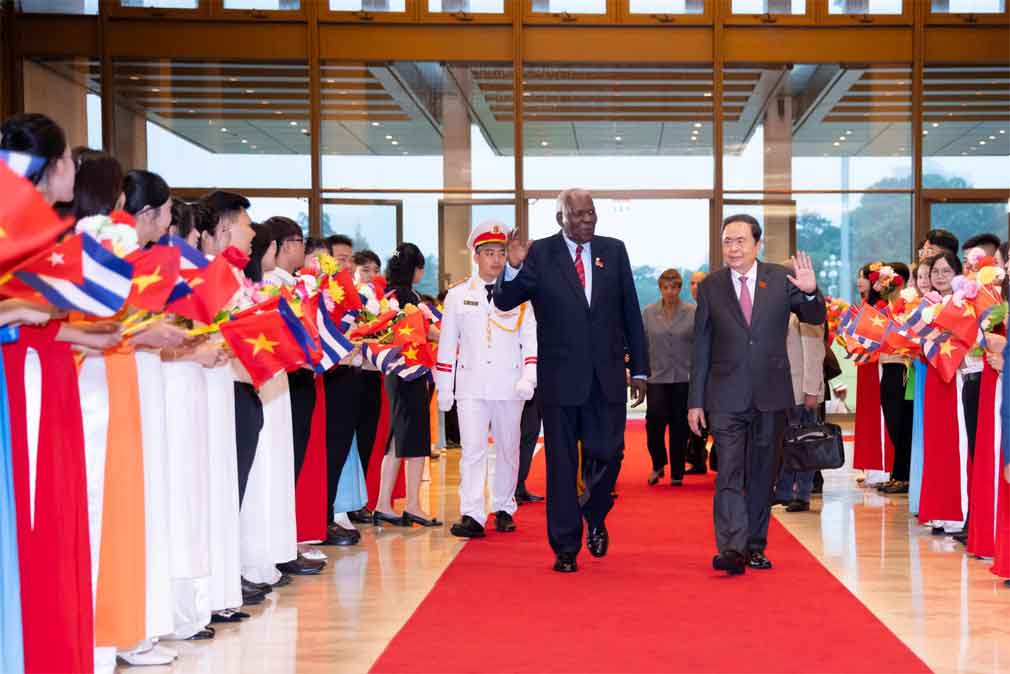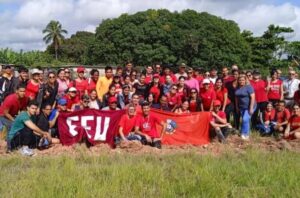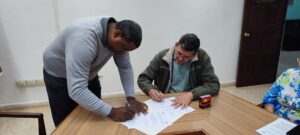The official visit to Vietnam which has just concluded in Hanoi by the president of the Cuban Parliament, Esteban Lazo, fulfilled all expectations, affirmed today the secretary of the National Assembly of People’s Power (ANPP), Homero Acosta.
The meanings of this trip are many, he emphasised in declarations to Prensa Latina, the also secretary of the Council of State of the Republic of Cuba, who highlighted the context in which it took place.
«We have celebrated the 80th anniversary of the birth of the Democratic Republic of Vietnam and the 65 years of the establishment of diplomatic ties, which have become historical, exemplary, sui generis relations, forged in the thought and action of two great leaders: President Ho Chi Minh and Fidel Castro,» he said.
Within the context of the visit, the second session of the Interparliamentary Cooperation Committee took place, which – he specified – was held shortly after the 42nd meeting of the Intergovernmental Commission on economic and scientific-technical cooperation concluded in this capital.
According to Acosta, the meeting between the legislative bodies came precisely to complement the efforts being made by the Government so that, in the ANPP’s remit, it can monitor, take experiences, and work on the legislative activity that corresponds to us.
«In addition to the general success of the parliamentary session, there is the general success of the visit,» he emphasised, recalling that the entire delegation met with the highest leaders of Vietnam: the General Secretary of the Communist Party, To Lam, the President Luong Coung, the Prime Minister Pham Minh Chinh, and the head of the Parliament Tran Thanh Man.
Each of those encounters was very useful, because we conveyed our experiences, the country’s situation, and we appreciated the understanding of the Vietnamese leadership towards the problems Cuba faces today and the willingness to help our people amidst this very complex situation, he stressed.
Acosta noted that both here and in Ho Chi Minh City, Hung Yen, and each of the places they visited, they were able to appreciate the warmth of the Vietnamese people towards Cuba, manifested in many expressions.
«One notices that that iconic phrase uttered almost 60 years ago by the Commander in Chief Fidel Castro that ‘for Vietnam we are willing to give even our own blood’ has resonated deeply with this people and that the generations that have come after feel the same,» he commented.
The ANPP secretary also referred to the unquestionable successes achieved by Vietnam, of which – he said – we can also be proud, because we feel them as our own and they are examples of how from socialism we can build more developed and prosperous nations.
We return very satisfied with what we have seen, with the country’s prospects, and we also take certain experiences, some of which may be useful for the work of the Cuban Parliament itself, he expressed.
On the other hand, we will follow up on the agreements of the Intergovernmental Commission and on the progress of the main cooperation processes and the economic-financial relations between our business sectors, he pointed out before announcing that the third session of the Interparliamentary Cooperation Committee will be held in Havana in 2026.
Also, on matters linked to the spheres where Vietnam is currently working for the economic and social development of Cuba, such as in agriculture – and not only in rice production, which is already significant for its results – but also in others like corn, pork, and chicken, which are other possibilities that are opening up.
Acosta also mentioned cooperation in biotechnology and recalled that, on the occasion of the recent official visit of the Cuban president, Miguel Díaz-Canel, the plant of the joint venture Genfarma was inaugurated, which will produce medicines and other biotechnological products for Cuba and Vietnam, with the possibility of marketing them in Southeast Asia.
«The possibilities for cooperation that are opening up are immense,» considered the secretary of Cuba’s Council of State, before remarking that «the capacities and receptivity that Vietnam has contribute greatly to the continued strengthening of relations between our two countries.»




